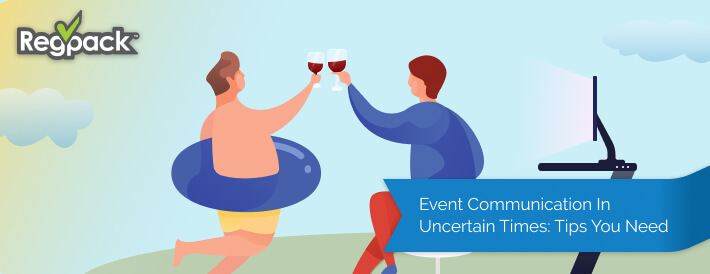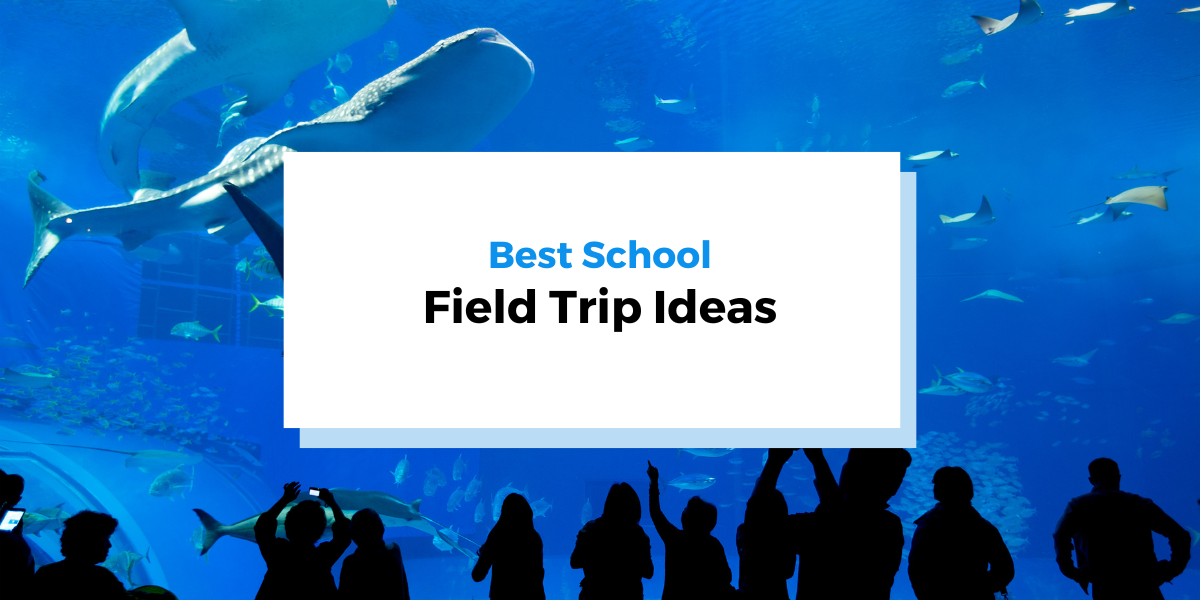It’s important to form the best event communication strategy and have the tools you need to communicate with event attendees during COVID-19.
These skills are important in normal times, and especially during a global pandemic like COVID-19. A global pandemic will affect your communication strategy, so it’s crucial to understand best practices and how best to implement this for your event.
The advice below will help your event be a success!
Jump to a Solution
Why is event communication important?
Event Communication During a Global Pandemic
How do I create the best event communication strategy?
What are the best event communication tools?
Conclusion: Bringing it all together

Why is event communication important?
Your event communication strategy is wrapped up with your event marketing plan. When it comes to communicating about your event BEFORE, this is where a solid marketing plan comes into play.
Make sure you:
- Start marketing your event at least 3 months out – if not longer.
- Use early bird and other discount offerings to up your marketing and encourage enrollment.
- Utilize email lists from previous events to market your upcoming event.
- Publicize your event online in places (Facebook groups, LinkedIn, etc) where attendees are engaged
- Create a nice event website and/or landing page with information needed to register, pay, and learn more about the event.
- Share testimonials – including video if you can – to garner engagement from potential attendees
Once you have attendees signed-up, it’s important to maintain constant communication with them including updates on the venue or online livestream, reminders about dates and any plans they should be making, links to resources and other material that adds value, and more.
Some other good things to communicate before the event include:
- The event agenda, including dates / times and any relevant links.
- Speaker names
- Weather and dress code if the event is in person
During your event, it’s important to send only reminders and important updates since attendees will be engaged with the event itself. Things like changes to the schedule, reminders about social or happy hours and big speaking events are all important and help ensure people don’t miss out on fun sessions and event programming.
After your event – communication is KEY to wrapping everything up and get attendees excited about the next event.
This can include saying thank you, sharing photos from the event, re-sharing the link to find resources online shared at the event including slideshares, PDFs and more, and information about the date/time/location of your next event.
All of this communication can and should be happening with one system – like your event registration software – to help streamline the communication AND more importantly, filter the information so it’s targeted for the attendee.
For example, if you need to send an update DURING the event to people who registered for a specific session or program, first filter for that group and then send the update so you aren’t sending information that isn’t relevant, to the entire event.

Event Communication During a Global Pandemic
During a global pandemic, like COVID-19, event communication is more important than ever!
Things can change at any moment, and you will need to update attendees quickly and efficiently on updates that affect your event – including moving to a virtual event platform, postponing the event to a later date, and in the worst case, any cancellations completely.
The pivot to virtual events comes with needing more event communication to ensure attendees feel in the loop and can react the way you want them to.
Instructions on Virtual Events
You’ll want to start by sending out instructions about how virtual events can be experienced. Are you going to send a link out to a screenshare or online meeting? Will they need webcams in order to participate? Will you be there to help troubleshoot technology issues?
Communication Tools to Share Livestream or Pre-Recorded Content
There need to be Communication Tools To Share Livestream Or Pre-Recorded Content and a platform to deliver that information to the right people. This is a great time to leverage your registration software.
Create links to livestream meetings and enter those in the description of every session you have for your event. You can then send out emails to each attendee with their session list and the links, dates, and times for their session.
Use the filter tool to communicate specific messaging and updates by session to attendees so the communication is personalized and tailored to their engagement level of the event.
Create a Plan if the Live-Event Falls Through
Coming up with a plan if future live-events fall through is important to communicate as well – for some events, going virtual will be easier than others – and it’s important to decide what is best for your attendees: virtual NOW or an in-person event at a later date.

How do I create the best event communication strategy?
The key to a good event communication strategy is being thorough, and keeping it personal!
The more effectively you can target and personalize communication with attendees, the better the message will be received and the better an experience they will have when working with you.
Segmentation: Filter your attendees by status, payments, allergies, or really anything!
The first step to personalizing communication with your attendees is using software that will effectively filter them by any data point you have.
Tailor your messaging to specific groups – like payment reminders to attendees with an open balance, the livestream link to attendees who are registered for a specific session AND paid in full, etc.
Trigger-based event communications
Go a step further to automate some or all of your event communication by using a trigger functionality in your event software to automate this messaging.
For example, use a status function to mark specific attendees who meet criteria (paid in full) – and trigger an email to send thanking them for making their payment. You can even have internal triggers, so anytime an attendee register for a session, the system can automatically send an email to the assigned speaker of that session that they have a new attendee signed-up!
Whatever you can do to customize your process, and automate communication to both your team and attendees, will save you time AND keep everyone engaged.
Email reminders
In general, you’ll want to space out reminders so you don’t overwhelm attendees. So fewer emails the farther out your event is, and more as you get closer.
Ensure you always change up the subject line and content, so you aren’t sending the same information more than once.
One email can be a line up of speakers and/or sessions available. Another one can be a reminder about the event 30 days out with a fun video and/or pictures.
The next email can share resources and/or where to go to find resources on your website that have been added/uploaded from speakers and session directors.
As you get closer, reminders about payments, last call for registration and session selection, as well as important dates and times are helpful.

What are the best event communication tools?
Emphasize how mass-emailing or segmenting your lists by status is crucial for virtual events or event communication in general.
A great software for virtual events can help automate and streamline your data collection and communication.
Find a great graphic designer as well who can create amazing graphics for emails, your website, and to incorporate with social media posts, event videos, and more.
And of course, putting together a great team of event professionals will go a long way to communicating effectively!
Conclusion
Ensure you have the right event communication tools to execute an amazing virtual event or in-person event this year.
Whether you are facing hard decisions during a global pandemic or not, having a plan to communicate effectively with attendees is crucial.
Less isn’t always more – make sure you are not spamming attendees, but don’t hold back with information either – and keeping everyone in the loop, staying engaged and communicating constantly, and sharing valuable resources will help your attendees stay in connection with you and help you execute your event as best as you can – online or later on in person.



















